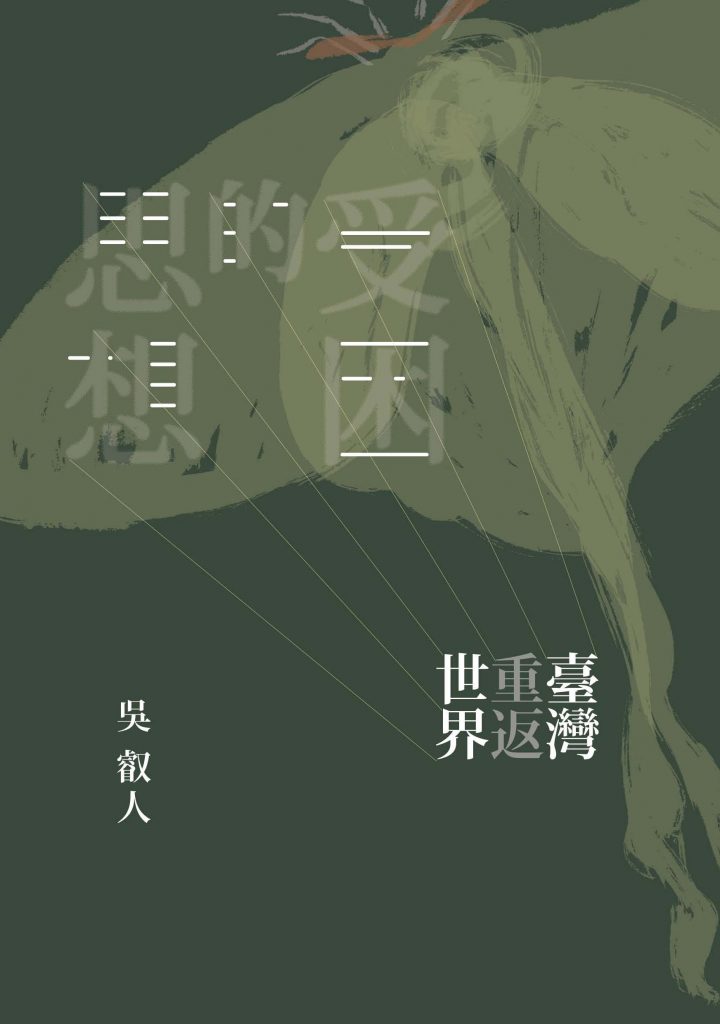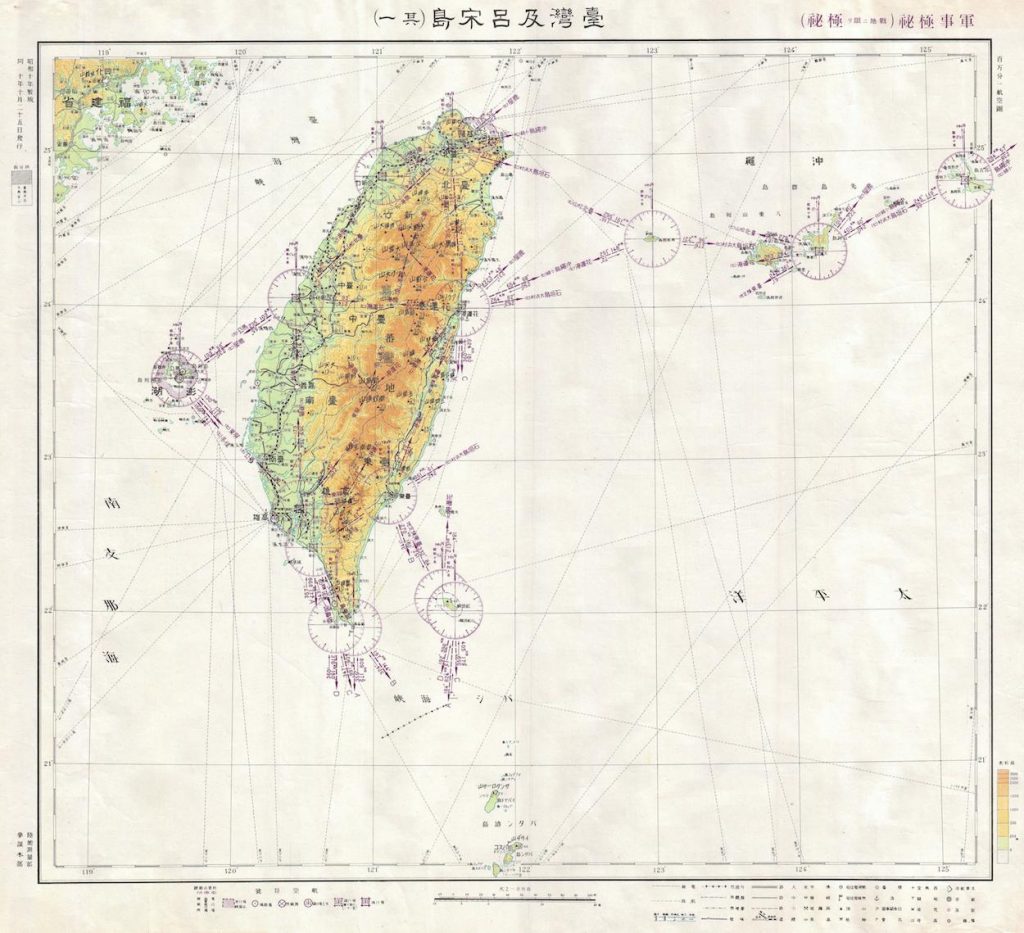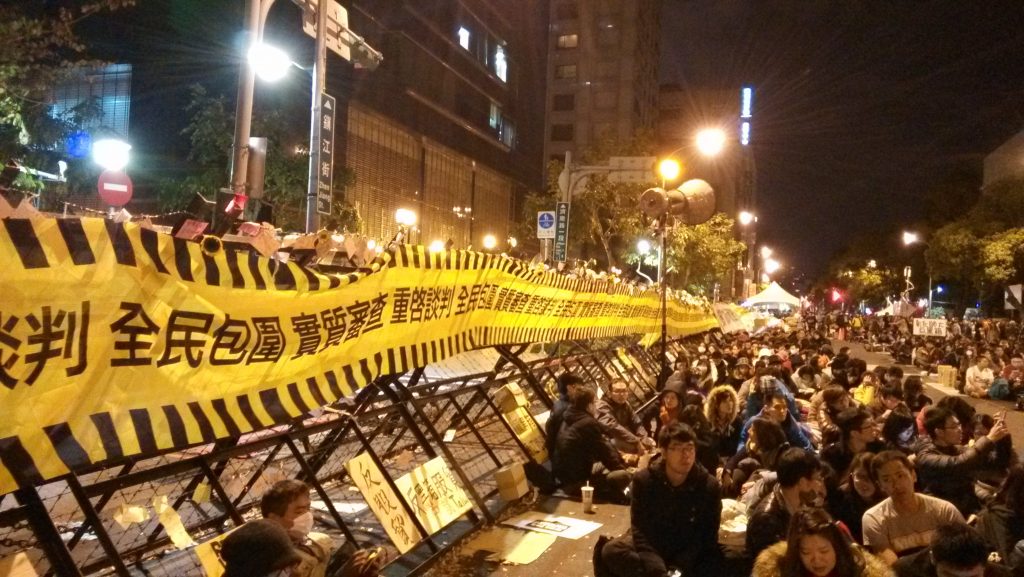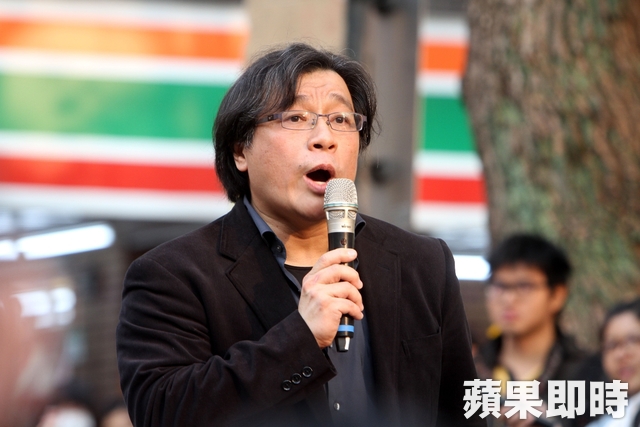by Brian Hioe
語言:
English
Photo Credit: Prometheus Unbound
WU RWEI-REN’S Prometheus Unbound: When Formosa Reclaims the World (受困的思想:臺灣重返世界)—which is not yet available in English despite having an English title—would primarily be an argument for a Left Taiwanese nationalism that advocates for independence, as distinctively colored by the Sunflower Movement marking the entrance of Taiwanese civil society and youth activism onto the stage of Taiwanese history. It is for this reason that Wu’s book would be an important book for Taiwan in the present. Wu Rwei-Ren (吳叡人) himself is, after all, a major Taiwanese public intellectual in his role as a political theorist and one who was highly involved in the Sunflower movement.
In making the case for a Taiwanese Left nationalism, Wu Rwei-Ren’s aim would be to cast Taiwan as a country which has been historically oppressed and colonized in multiple ways. But unlike many previous iterations of Taiwanese nationalism which have also argued this, Wu’s version of Taiwanese nationalism would be one which is firmly aware of the historical nature of Taiwanese identity. This would be a legacy from that much of Wu’s understanding of nationalism is derived from Benedict Anderson, Wu having been the Chinese language translator for Anderson’s Imagined Communities: Reflections on the Origin and Spread of Nationalism.
Wu’s notion of Taiwanese identity does not require any primordialist claims about blood or ethnicity, but acknowledges the modern historical nature of Taiwanese identity. Wu freely acknowledges, for example, that the appeal to a “four hundred years of Taiwanese history” reflects the attempt to essentialize Taiwanese identity by rooting it in longue-duree history, not necessarily so different from the Chinese claim to “five thousand years of Chinese history.” Wu fully realizes that with a different turn of history in the late 19th century, Taiwanese identity as it is today would probably not exist altogether.
 Book cover of Prometheus Unbound: When Formosa Reclaims the World
Book cover of Prometheus Unbound: When Formosa Reclaims the World
Nevertheless, this is no obstacle to the Wu’s advocacy of a Left Taiwanese nationalism and Taiwanese independence. In this Wu differs, for example, from theorists of the Taiwanese pro-unification Left as Chen Kuan-Hsing who attempt to deconstruct Taiwanese identity by pointing to its historical nature in order to restore Taiwanese to the sense of originary Chinese identity. Such individuals assume a priori that Taiwanese were originally Chinese and that the deconstruction of Taiwanese identity will restore them to the status of being Chinese. The issue of the pro-unification Left thinkers to whom Wu is likely responding in some way is that their attempt at deconstruction of Taiwanese identity is merely to in the service of slipping in essentialist claims about Chinese identity. But Wu goes farther in pointing to the constructedness of all national identities while still maintaining advocacy for Taiwanese independence on the grounds of a separate Taiwanese identity from that of Taiwanese identity.
Wu’s theoretical claims about Taiwan as following from these theoretical underpinnings are thus highly innovative, claiming that Taiwan’s nonconformity to either specifically colonial or specifically postcolonial paradigms while seeming to display characteristic both reflects the overlapping striations of Taiwanese history between different colonial regimes and the pluralistic nature of Taiwanese society. For example, from the perspective of indigenous, obviously the Han were the first colonizers, while for Taiwan’s Minnanese Han settlers, it would be the KMT and waishengren who are perceived as Taiwan’s first colonizers. One is reminded of Kojin Karatani’s notion of the “parallax” in this view of Taiwan as antinomiously but simultaneously colonial and postcolonial. In this, Wu proves himself to be a thinker who can acknowledge the existing multiple overlapping of histories as comprising Taiwanese history, rather than prioritizing only benshengren history, or subtly prioritizing Chinese history while claiming to also recognize Taiwan’s pluralism in the way of the pro-unification Left. Wu’s thought may mark a new mode of conceptualization for the pro-independence Left, then.
The Nation-State and the Subject
PROVOCATIVELY in his work, Wu points to the means by which under the historical conditions which have led to the proliferation of the nation-state as a social formation globally, national identity is intrinsically bound up with the constitution of human beings as subject. This is by no means an Heideggerian claim about essential, transhistorical Being, but rather to point out that human beings relate to the world writ large through the intermediation of the social formation of nation-state.
That is to say, under present historical conditions in which the nation-state is a dominant social form, individual can never distend their country from themselves as human subjects, because who they are is conditioned by the formation of the nation-state. For example, one may be an “American”, for better or worse, and will remain such throughout one’s lives, regardless of whether one approves of or disapproves of the actions of the nation-state of “America”. One is indelibly tinged with the traces of the nation-state of one’s origin—again, not an attempt to cast aspersions about nature of human beings as rooted in ethno-nationalist claims about the blood ties of the nation, but to recognize the enormous sway that the social formation of the nation-state has in conditioning all humans alive today and that it is very difficult to distend one’s self from the nation-state. If there is a tinge of transhistorical or essentialist thinking about the human condiion which creeps into this, however, it probably originates in that part of the appeal of Andersonian thought to Wu seems to be it’s usually neglected existentialist strand. Anderson, for example, suggests briefly in Imagined Communities that part of the reason why humans create social formations as the nation-state is to avoid the feelings of meaninglessness that comes with social anomie.
But this insight of Wu about the nation-state is a valuable corrective to the form of Left thinking which dismisses the nation as a fiction, with absolute reality to be found in economic reality and economic reality only. The nation is indeed a fiction, but it is one with discursive power enough to mobilize millions to die in the service of what is ultimately an “imagined community.” Arguably, many of the failures of the Left in the 20th century can be accounted to the failures to realize the power of the formation of the nation-state as something with the power to trump class consciousness. But in a world where the historical formation of the nation-state does not look like it will go away anytime soon, it may be that there is no avoiding the nation-state, forcing Left organizing with transnational aims to operate within the bounds of the nation-state while also seeking to go beyond it.
This is, of course, an insight that that Wu arrives at from the precarious nature of his native Taiwan, which is a fully functioning de facto nation-state with its own economy, military, and self-governing polity but one denied international recognition by all but a handful of countries because of territorial claims upon Taiwan from China. But while this is not a situation unique to Taiwan, it would be another particularity of Taiwan that Taiwan’s own government does not acknowledge Taiwan as Taiwan either, but claims Taiwan to be the Republic of China—haunting contemporary Taiwan with the ghost of a nation that came to an end in 1949 and continuing to bind Taiwan to China both domestically and in the international sphere despite the self-evidentiality of Taiwan not being China. However, it is probably the disconnect between the map and the territory that is so blindingly visible in Taiwan which leads Wu to such views.
A Left Argument for Taiwanese Independence?
WU’S ADVOCACY for Taiwanese independence, then, would be founded upon this view of the nation-state as playing such a large role in conditioning human subjects and an appeal to social justice for the Taiwanese people who are denied a place in the world as a product of geopolitics. Furthermore, the dilemma of the Taiwanese people is to be caught between two empires—America and China. Although perhaps still more critical of China and a bit naive about America’s role behind many seemingly “international” NGOs, Wu is fully aware of the means by which America extorts Taiwan economically by holding promises of security, for example, through pushing for American pork imports to be allowed into Taiwan as a trade off for security promises.
But to deny America or China would mean largely to be subsumed to the control of the other. For example, a decline in American power would mean Taiwan falls to undemocratic control by China—meaning that there are no real good choices for Taiwanese. In this, Wu is critical of the Taiwanese Right nationalists who seek alliance with right-wing forces in America or Japan, with a vision of Taiwanese independence largely seen in terms of building a strong national bourgeoisie. Wu would instead advocate alliance of democratic movements between small nations of the Asia-Pacific against larger nations as America or China, something he casts in in poetic terms as an alliance between the people living in nations along the Kuroshio Current or the “Lilliputian Dream” of many small people pitted against the giant “Gullivers” of the world. Obviously, there are shades of Pan-Asianism and of the non-alignment movement to be found here, as harkening back to attempts during the Cold War to find a way out from the bipolar world dominated by America and China.
 Japanese colonial map of Taiwan
Japanese colonial map of Taiwan
As such, Wu seeks to recast the terms in which Taiwanese independence has been thought of by attempting to situate Taiwan as a historically oppressed “subaltern”, as reflected in the book’s Chinese title of 困受的思想, which can be translated as “thought of the oppressed.” Wu thus calls for the alliance of such “subaltern” forces. But if this seems somewhat unrealistic in nature or overly idealistic, in order to oppose the logic of Cold War realpolitik from Right Taiwanese nationalists which leads them to see salvation for Taiwan in rationalist alliance with Japan or America, Wu seems to suggest the precise need to inject some Romanticism into the equation. Casting Taiwan’s dilemma in Promethean terms regarding its project of “reclaiming the world”—or more precisely, of reclaiming its place in the world—Wu would suggest that within the precise impossibility of Taiwan lies its possibility.
Questions of Nationalism, Internationalism, and the State
FROM A LEFT perspective, however, we may question how both Left Wu’s Taiwanese Left nationalism actually is in regards to how internationalist it is, and as to whether Wu’s perspective is indeed too idealistic. Going back to Benedict Anderson’s own background as an more or less anarchist theorist of the nation-state sympathetic to the demand for independence in his native Scotland, probably Wu’s endgoal is anarchist in nature. But Wu does not outline particularly what his views are on how to go from the nation-state to anarchy, two seeming opposites. At the very least he suggests that an alliance of subaltern nations would be more productive for the bringing about possibilities for anarchism, as a form of internationalism.
Wu’s notion of a Left Taiwanese nationalism is very different from a Right Taiwanese nationalism, whose advocates would see no real problem for Taiwan becoming an exploiter nation of other countries because their nationalism leads them to place Taiwan above other countries. Yet it is to be questioned, is Taiwan really a small country? Taiwan may seem small because it is probably only thought so because of constant comparison to China. By the numbers, Taiwan is in fact quite large as a country. As such, although members of the pro-unification Left like to make this claim to suggest that Taiwan is a capitalist exploiter of China—framed in terms to portray China as a weak country exploited by Taiwan, a puppet state of American empire—it is in fact true that Taiwan could easily in itself become a strong exploiter of other countries in the Asia-Pacific. These are generally the same countries which Wu would call for alliance with as an alliance of oppressed nations of the world. How internationalist, then, is Wu’s Left Taiwanese nationalism, truly?
Wu’s notion of a Left Taiwanese nationalism is also very different from the Right Taiwanese nationalism in which the essentiality of the nation-state is never questioned and there is a focus on benshengren ethno-nationalism. As many others have been, Wu is emphatic on the nature of contemporary Taiwanese nationalism as being a form of civic nationalism and relatively open in nature. Certainly, recent years have seen the rise of a number of Left-oriented civic nationalisms in Scotland, Catalan, and elsewhere, if Wu is somewhat mistaken in also trying to situate post-Umbrella movement Hong Kong within this trend, given the rise of various ethno-nationalist strands of thought in Hong Kong after the Umbrella Movement.
 Photo credit: Brian Hioe
Photo credit: Brian Hioe
But although we can situate Taiwan within these global trends regarding a shift towards Left civic nationalism as well, in Taiwan, as with elsewhere, it is important to note that seemingly Left civic nationalisms can also unexpectedly metamorphose into dangerous forms of right-wing ethno-nationalism. In this, one may productively compare Wu to Wang Hui, for example, a figure with many parallels to Wu as a leading Chinese public intellectual.
Namely, the Chinese New Left of whom Wang is a leading figure can be read as a form of Chinese Left nationalism as counterposed to Wu’s Taiwanese Left nationalism, even if the Chinese New Left will rarely openly admit to its nationalism. The Chinese New Left views the nation-state should remain the fundamental building block of society and New Left thinkers as Wang shy away from attempts to question internal composition of China—seeing as China is a multiethnic nation whose territory includes more than one former sovereign nations. With the Chinese New Left, there are tinges of ethno-nationalism where the primacy of Han China is concerned. The New Left is wary of allowing the right of self-determination to ethnic minorities is a threat to destabilizing China and so makes attempts to deconstruct ethnic minority identities as historical in nature and the suggestion that ethnic minorities will become subsumed into Chinese identity in time—in a manner not too dissimilar from the pro-unification Left’s attempt to deconstruct Taiwanese identity. This differs from Wu, who does point to the heteroglot composition of Taiwan—asserting a form of Taiwanese nationalism as emergent from all these ethnic groups which comprise modern day Taiwan while simultaneously not being hostile to demands, for example, for indigenous independence.
But if Wang and other New Left thinkers are sometimes critiqued for advocating what is actually a form of statist nationalism in the veil of Leftism, it also is to be questioned whether this would be the case in regards to Wu. Wu obviously differs from Wang, being closer to anarchism, but it also is to be questioned to what extent even a Taiwanese Left nationalism would be bound up with a form of statist nationalism pertaining to the project of the “nation building” (the “建國” part of the project of “獨立建國”) of a Taiwan which is not the Republic of China. Wu’s notion of Taiwanese “nation building”, as bound up with the project of “Taiwanese independence”, would be the attempt to realize institutions of democracy for the Taiwanese people in governance. Yet such projects run an inherent risk of resolving into the construction of a strong authoritative state. As Nietzsche said, “A state, is called the coldest of all cold monsters. Coldly lieth it also; and this lie creepeth from its mouth: ‘I, the state, am the people.’” This would be a very old problem, returning to the question of the “withering away of the state” as it was phrased in Marx.
 Wu Rwei-Ren during the Sunflower movement. Photo credit: Apple Daily
Wu Rwei-Ren during the Sunflower movement. Photo credit: Apple Daily
Similarly, Wang Hui and other New Left thinkers also advocate for a form of pan-Asianism not too unlike that of Wu’s, just with the claim that China also belongs to the category of oppressed nations and perhaps the underlying suggestion China belongs at the head of such an alliance. We might ask whether the same of Wu regarding Taiwan, again, returning to Taiwan’s role as what may not truly be a small country. Again, the internationalist dimensions of Wu’s thinking are not totally worked out, and one questions what would happen if the project of Taiwanese nationalism came into conflict with internationalist anti-capitalism. Perhaps Taiwan is neither a “Lilliputian” or a “Gulliver” but somewhere in between, after all.
Nevertheless, these are problems beyond the purview of a single book, or even a single thinker. It would be that Wu Rwei-Ren’s Prometheus Unbound: When Formosa Reclaims the World is a landmark book, reflecting post-Sunflower movement social thought in Taiwan but also making a daring intervention into it. It is will stand out among works of its kind as an index of the present historical moment and is highly recommended for not only individuals seeking a gauge of post-Sunflower social thought in Taiwan but for activists in Taiwan themselves seeking to contemplate the problems Taiwan currently faces.

